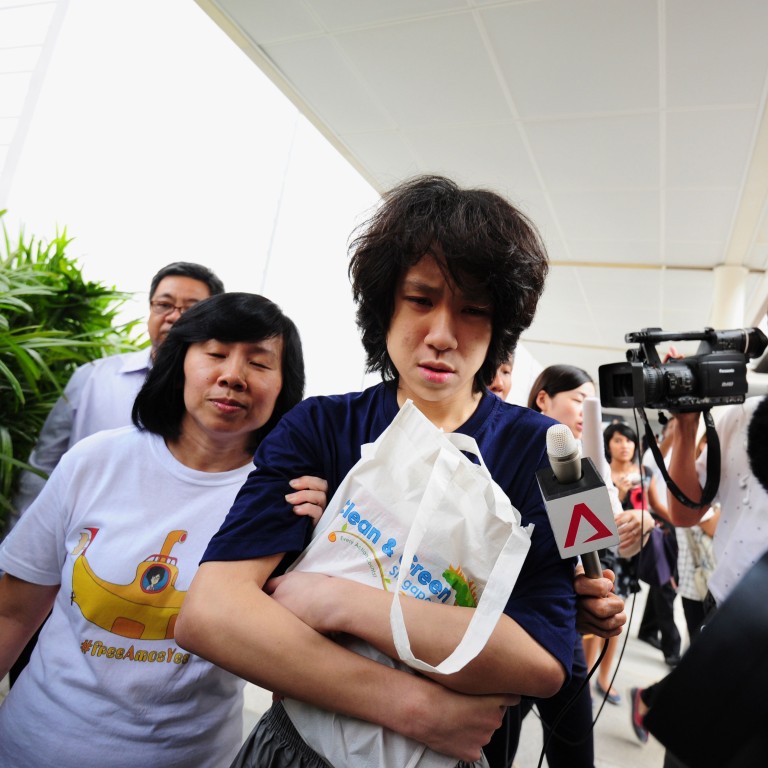
Case of Singapore teen Amos Yee is a reminder that values are relative
Free speech is not a concept with global standards. We can aspire to an ideal, but the practical reality is that nowhere in the world does it exist in that form.
Hong Kong cherishes its free speech. Social media is vibrant with all manner of views, officials often at the receiving end of opinions that can be witty, barbed or just downright insulting. The jailing and sentencing of Singaporean teenager Amos Yee Pang Sang over a YouTube video and blog postings taking unfavourable aim at Christianity and late leader Lee Kuan Yew therefore came as a shock to some Hongkongers, just as elsewhere in the developed world. But to see the case through such a prism is to under-appreciate the island-nation's racial and religious minefields.
Yee, 16, had uploaded a video comparing Lee to Jesus Christ and a cartoon showing the country's founding father and the late British prime minister Margaret Thatcher in a compromising position. Strict hate-speech and obscenity laws were violated and later conditions not to post any more content until the case was settled were also breached. A four-week sentence was imposed, but the boy was immediately freed for having already served time while awaiting trial. His wild-eyed and dishevelled appearance on release were memorable; he had obviously undergone a traumatic experience.
That a legal system could put a person of such tender age through so stressful a time drew criticism at home and abroad. Societies used to the lambasting of public figures and loose internet controls were similarly aghast. But Lee held a special place in the hearts of many Singaporeans and Yee's postings broke zero-tolerance laws on race and religion. He was not the first to be charged and sentenced over insensitive comments, although his youth ensured he got global attention.
Singapore's history and social makeup have made race and religion touchy issues. Nor is free speech a concept with global standards; what applies in one place is unacceptable elsewhere. We can aspire to an ideal, but the practical reality is that nowhere in the world does it exist in that form. There is a line in every society between legal boundaries and free speech. Expecting others to share our values is to ignore differences.

